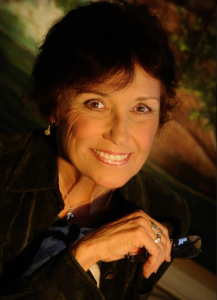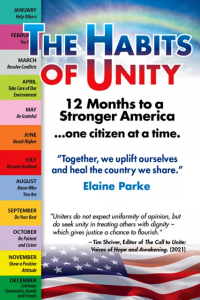The rise of social media and hate-based politics has helped transform the United States into a nation of bullies where acts of rage and intimidation have become normative and even celebrated, character educator Elaine Parke warns.
“What’s unique about social media is that it’s given rise to increased bullying because it is the place for coward-bullies,” said Parke, author of Habits for Unity: 12 Months to a Stronger America … One Citizen at a Time. “Until we had social media bullying, you had to at least be there to be a bully. Now, people can bully and be cowards and hide behind their posts. They don’t need to face up to their behaviors.”
“Until we had social media bullying, you had to at least be there to be a bully.”
The 45th president of the United States also pushed the nation’s addiction to rage to record levels, she said.
“My issue with Donald Trump isn’t really about politics. It’s about the fact he made it OK to call people names, to use foul language — and people look up to the president. It isn’t what his policies are, but as a human being he lowered the bar on civility and kindness and treating other people with respect, and he seemed to give permission to a whole generation of people to become bullies.”
But bullying, whether political or interpersonal, by no means began with social media or recent political leaders, Parke said. Rather, it was baked into the nation’s core by the revolutionary founders who crafted a constitution that enshrines rights but not accountability.
“They forgot to write a bill of responsibilities, and I believe we have spent 246 years believing in our rights and pumping our chests about this and that.”

Elaine Park
Occasional pleas to the contrary — like President John F. Kennedy urging Americans to look for ways to serve the country instead of being served by it — are eventually drowned out by demands for still more privilege, she said. “Over time, that individualism, that feeling that we have rights, dominates us again. As a result, we have evolved into a country of adult bullies and we have lost any sense of community.”
Parke said she wrote The Habits of Unity from years of experience taking civility and character training into schools and other institutions. Its 12 chapters are divided into monthly topics and daily readings to help users form habits of concentrated positivity that can break the bonds of personal and social negativity. Topics include helping others, resolving conflicts, encouraging community involvement and cultivating patience and listening skills.
“What’s needed is healing. We have to get our citizens away from the bullying and the negativity.”
The approach has proved effective in schools, senior citizen centers and businesses previously riddled with internal discord, she said. “That’s how we actually move the needle away from bullying and divisiveness to the Golden Rule and toward respect and harmony.”
Parke said she is a Christian but emphasized that the teachings in the book are ecumenical and interfaith in presentation and application. “The Golden Rule is not tied to one religion. It can be found in every book of every religion. It teaches ‘Do unto others’ — which is nothing more than the law of mutual respect.”
 Treating others with compassion is a principle that can help reverse the epidemic of bullying that has gripped the nation — one person at a time, she said. “We need to uphold that rule. The Golden Rule is about getting along on this planet, and it’s time we start doing it because we see what happens when we don’t.”
Treating others with compassion is a principle that can help reverse the epidemic of bullying that has gripped the nation — one person at a time, she said. “We need to uphold that rule. The Golden Rule is about getting along on this planet, and it’s time we start doing it because we see what happens when we don’t.”
Habits of Unity also presents a Native American story about every person having a good wolf and a bad wolf within them. “Which wolf grows stronger depends on which wolf we feed,” Parke said.
Society faces the same struggle, she explained. “The two wolves are like a conflict inside us between goodness and fear. Today’s world is feeding the wolf of fear and negativity. This is behind the escalation of this intolerable nation we are living in today.”
Parke said she believes God intended for human beings to live in harmony with each other and their surroundings. “That’s why time is of the essence. We need to feed to the good wolf. This is an ecumenical way, without disagreeing over doctrine, to get the good wolf fed.”
Related articles:
Putting Jesus and Paul ahead of personal freedom | Opinion by Robert Sellers
In America’s culture divide, the Golden Rule is no longer enough | Opinion by Mark Wingfield
The recovery of empathy | Opinion by Stephen Shoemaker


